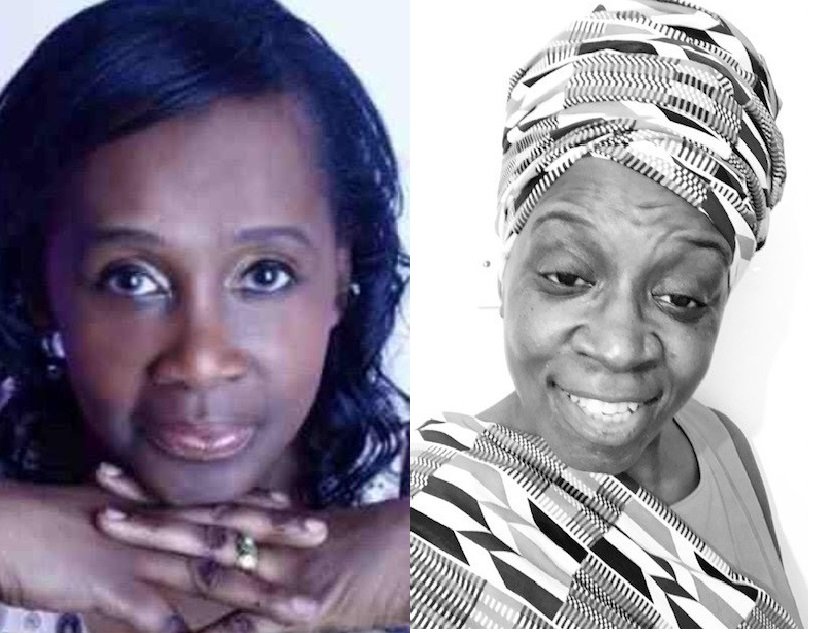Black History Month has been a pillar of our central history since 1987 when the UK first celebrated it in October. Since then, Black History Month has had multiple school events, monuments, and large celebrations, all highlighting the vibrant culture, history, inventions and pioneers that black people have given the world. The impact black people and history have had on the education system is one of interest, as it ranges from the integration of black students into white/predominantly white schools, to consciously introducing more knowledge of black history into the education system. However, although that knowledge is present, it is lacking in our schools and courses, leaving students with a narrow view of history, and black students left out of the conversation.
How did Black History Month originate? We have historian Carter G. Woodson to thank for its creation. He originally started with a single week in 1926 in the US, as a symbol of recognition and importance, and immediately set on encouraging the history of Black Americans to be taught in public schools all over. Then in 1969, Black History Month was proposed by university students, and a year later, it was celebrated by institutions across the country. It encouraged an influx of Black History clubs and interested teachers. Then it was brought over to the UK in 1987, through the leadership of activist Akyaaba Addai-Sebo. October was chosen as it coincided with the African Jubilee Year, and by pure coincidence, the year also coincided with the 150th anniversary of Caribbean Emancipation and the 100th year anniversary of Marcus Garvey’s birth. Black History Month has been celebrated in the UK for 34 years now, and with the publicity the month gets, it should encourage more black history into the education system. However, 3 decades later, students, parents and teachers are still advocating for more black history in classrooms and the curriculum.
In the education system, Black History Month is viewed as a time to revisit well-known black pioneers, inventors, and people who have done something great for the black community, but more and more conversations are taking place about the essence of Black History Month, and its standing in education. Black History in schools ends up only fully and truly being addressed one month of the year, in Black History Month, and then it gets discarded in place of general British History, which rarely ever includes discussions about black people. The Guardian highlighted this in a July 2020 article, when it showed that since the changes made to the curriculum regarding history in 2014, Black history has become optional to teach instead of explicitly focused on. This impacts not only the way students learn in class, but also exams and modules, as out of the 59 history modules across AQA, Edexcel and OCR, only 13 of those modules reference Black history, and only 5 explore British Black History. Not only does this leave students in general with only a portion of the conversation, but this leaves Black students out of the conversation entirely. Although it is taught, the way it is taught makes it seem as though it is just a requirement, with little passion or enthusiasm behind the subject.
This omission of Black History does not just stop here, it also happens outside the UK. In February 2021, a Utah public charter school in America made waves when it sent out a letter to parents allowing them to withdraw their children from their Black History Month curriculum, due to the parents’ request. The request was met with backlash however, and the school reversed their decision. But the fact that the decision was made in the first place is telling about the opinion of Black history in the education system. Schools are teaching children, but how deep is the education going? Touching the surface of Black History is not good enough anymore. Black History Month ended a month ago, and with that, mainstream black history education went too. Black History is not just a diversity box to tick, it is the real-life experiences and achievements of everyday Black individuals who did amazing things. In addition, the information relayed in many Black History lessons in mainstream schools are surrounding familiar Black faces: the Martin Luther Kings, the Rosa Parks, the Mary Seacoles of the world. These people are vital to our knowledge of the impact Black people have left on the Western world, but by leaving out individuals such as Charles Richard Drew, surgeon and blood transfusion pioneer, Frederick McKinley Jones, the inventor of the refrigeration system for trucks, The NASA ‘human computers’ Dorothy Vaughan, Katherine Johnson and Mary Jackson, Gladys West, the creator of the calculations used for the GPS, and William Robinson Clarke, the first Black pilot to fly for the UK, youth are missing out on a vast array of knowledge and impact.
From human zoos to the Windrush Scandal, black people have often historically been made to feel like outsiders in this country. A commodity, something to be marvelled over, and then, human, but dismissed of emotion, especially ones directed towards signs of racial bias. The effects of slavery and racism are ones that nobody wants to discuss anymore; it is “done away with” and in many people’s eyes, it is over. However, not many people want to discuss the achievements that black people have made either. Black History Month, in schools especially, often consists of a few well-known individuals, many who are directly related to forms of activism and stopping segregation, and not many who have made achievements outside of the activist sector. However, Black History is not just limited to slavery and segregation, and only highlighting that in classes leaves a large gap in the knowledge and understanding of our children, because Black History Month is not just about history, it is about identity, and by leaving positive, varied Black influences repeatedly out of the curriculum, we are only showcasing one identity of blackness to our youth, and in turn, to society.
Headteacher: Mrs Laura Osei Primary Assistant Head: Verona Hoilett
More and more organisations are advocating for Black History to be a regular part of the curriculum, with universities taking part in ‘Black History Year’, making sure that black individuals prominent in various subjects are recognised across the board, and organisations such as Impact on Omission and The Black Curriculum emphasising the same in the curriculum. Schools such as The Eden School in West London, who we held a very powerful and detailed interview with, make a conscious and continuous effort to portray positive Black images and influences daily in their classes. When speaking to the Headteacher, Mrs Laura Osei, and the Primary Assistant Head, Mrs Verona Hoilett, they highlighted that for their staff and students, Black History was about “their students seeing Black role models” and they make sure to reference prominent Black individuals in all lessons, from maths to music. With plays depicting the story of the slave trade up to modern day Britain, using music and literature written by Black artists in lessons, and maintaining a strong focus on feeling positive about being a person of colour, they have seen an improvement in the academics and well-being of their students by bringing in a Black emphasis, and acknowledge that the core of Black History in education is about fostering a positive sense of identity in our Black youth, to encourage their growth and self-esteem for the rest of their lives.
Having a number of Black youth within our programmes, we at The Safety Box ® CIC make sure to instill a positive influence into our youth. We understand that a large part of positive self-esteem is seeing people like yourself who have made a positive influence or contribution in their own lives and the lives of others. Education is not just academic, it is also experience, and we honour that by reminding our Black youth that they are more than the pieces of negative media they may hear, or the statistics on television. We encourage them to find positive Black role models, and to know that they have the ability to achieve greatness, just like all those who came before them, and that their history is not just one of pain, but also of pride and excellence.
Black History is everywhere, but it is not looked at deeply enough, not addressed enough, not praised enough. Our youth are often learning more from social media and outside sources than classrooms, and in those ways, we are doing a disservice to their education. They need to be reminded of the achievements that Black Individuals have made throughout history. Those reminders are not just to be given once a year, but all year. Instilling this in our youth ensures that we give them the full knowledge and personal power they need to take on the rest of the world, and not just a chapter in a piece of history. To quote Mrs Verona Hoilett from The Eden School, “Black History is not just for a month, it is for a lifetime.”




